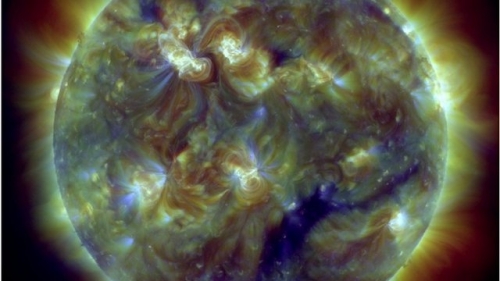Disusage presents the contradictions and foibles of usage manuals, style guides, and the quirky folks who love them. This week: the celestial and earthly roots of “disaster.”
disaster. n. s. [desastre, French]
1. The blast or stroke of an unfavourable planet.
“Stars shone with trains of fire, dews of blood fall;
Disasters veil’d the sun; and the moist star
Upon whose influence Neptune’s empire Stands
Was sick almost to doomsday with eclipse.” Shakesp. Hamlet.
2. Misfortune; grief; mishap; misery; calamity.
“This day black omens threat the brightest fair,
That e’er deserv’d a watchful spirit’s care,
Some dire disaster, or by force or flight;
But what, or where, the fates have wrapt in night.” Pope
—from Samuel Johnson’s A Dictionary of the English Language, 1755
disaster. (?), n. [F. désastre; pref. dés- (L. dis-) + astre star, fr. L. astrum; a word of astrological origin.]
1. An unpropitious or baleful aspect of a planet or star; malevolent influence of a heavenly body; hence, an ill portent. [Obs.] “Disasters in the sun.” Shak.
2. An adverse or unfortunate event, esp. a sudden and extraordinary misfortune; a calamity; a serious mishap. “But noble souls, through dust and heat, Rise from disaster and defeat The stronger.” Longfellow.
—from Webster’s Revised Unabridged Dictionary, 1913
“Disaster: something wrong with the stars.”
—from “English: An Ode,” by Robert Hass.
“In every phase and aspect of a disaster — causes, vulnerability, preparedness, results and response, and reconstruction — the contours of disaster and the difference between who lives and who dies is to a greater or lesser extent a social calculus.”
—from “There's No Such Thing as Natural Disaster,” by Neil Smith.
Have an aspect of usage you want examined? Email me.





 A Black Balloon Publication ©
A Black Balloon Publication ©